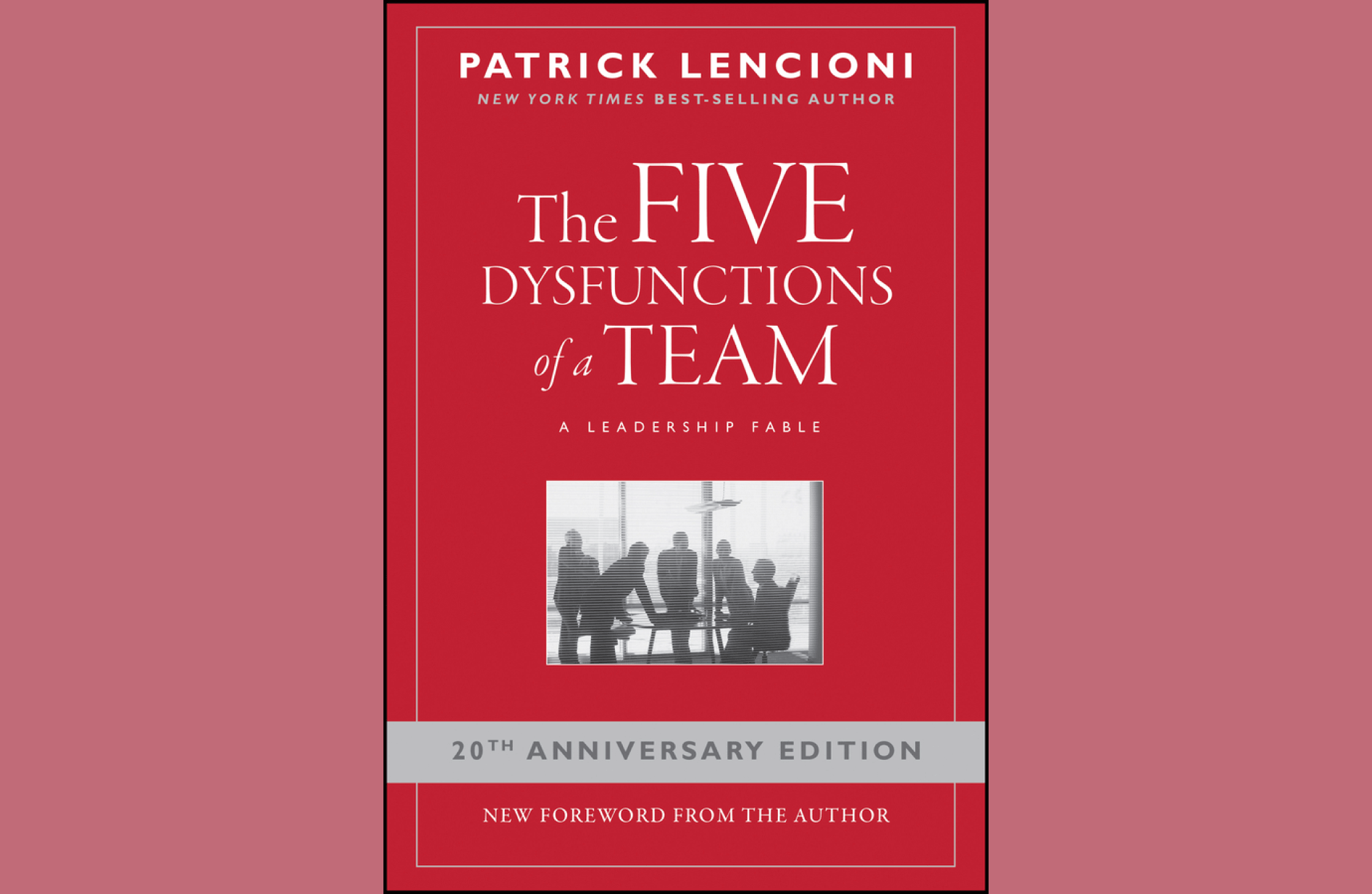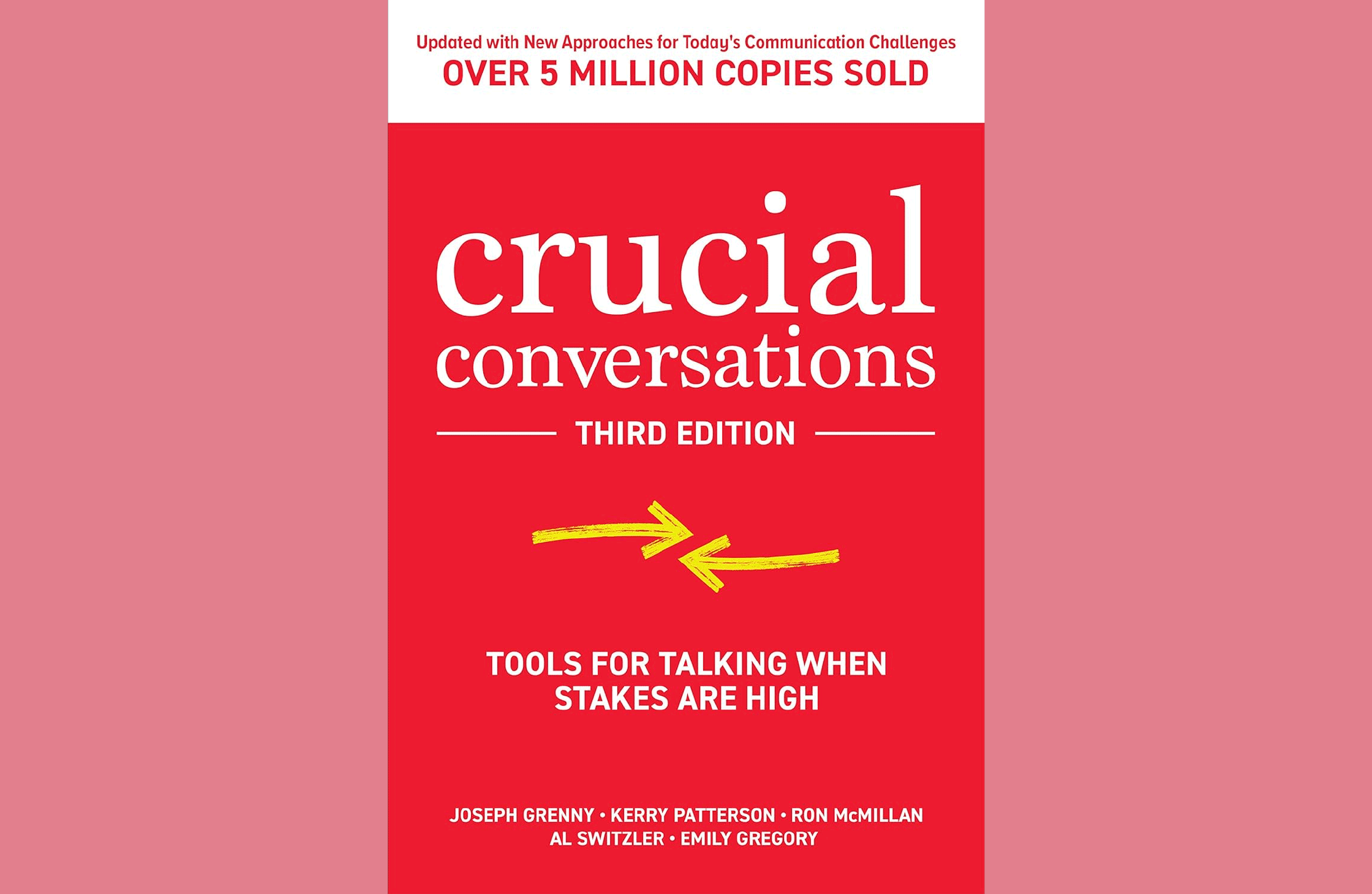Embrace Tough Conversations To Build Strong Trust In A Team
Building trust through tough conversations can transform a team. Learn how founders like Tim Cook navigated leadership challenges, overcame crises, and built resilience.

Building trust through tough conversations can transform a team. Learn how founders, including Tim Cook, used trust and resilience to survive the ultimate leadership challenges.
Every founder embarks on a journey that mirrors the classic hero’s arc. There are moments of vision, excitement, and triumph—but times when the world’s weight feels insurmountable. For founders and CEOs, the eighth stage of the Hero’s Journey, known as The Ordeal, represents the critical juncture where survival is not guaranteed, and the company’s and its leader’s future hangs in the balance.
“Trust isn’t built in the easy times. It’s forged in the crucible of hard decisions and tough conversations.”
This is the moment of the most profound crisis. For some, it’s a financial crunch, a failed product launch, or the realization that your company needs a fundamental pivot. For others, it could be a personal or internal crisis—when burnout, self-doubt, or team discord threatens everything. The ordeal tests leadership, strategy, and resilience regardless of its form. In this stage, founders are tested and transformed, personally and professionally.
The Nature of the Ordeal: The High-Stakes Moment Every Founder Faces
In the business world, The Ordeal is the “do-or-die” moment that every founder dreads yet inevitably faces. This critical juncture is not merely about solving a problem or overcoming an obstacle—it’s about fighting for survival, often against overwhelming odds. The stakes are as high as they can get: the future of the business is on the line, and the decisions made during this time will determine whether the company thrives, survives, or collapses.
For founders, the ordeal might take many forms. Surviving a financial crisis is one of the most common ordeals. When cash flow dries up and the company’s runway is perilously short, the founder must make agonizing choices, such as cutting staff, seeking emergency funding, or restructuring the business. Leaders must balance immediate survival needs with long-term vision in these moments—a delicate act that requires incredible foresight, emotional control, and strategic thinking.
Another version of the ordeal is navigating a significant pivot. Whether it’s realizing that the current business model is flawed or that the product is no longer relevant, pivots are often make-or-break moments. Founders must act swiftly, sometimes without complete information, to reorient their business. The pivot may involve entering a new market, revamping a product from the ground up, or targeting a different customer base. Every decision at these moments has immense financial consequences for team morale and organizational focus.
For many leaders, external pressures also amplify the ordeal. Competitors are often poised to take advantage of any perceived weakness, while investors may lose faith if the company falters. Media scrutiny, legal challenges, or shifting market dynamics can further heighten the sense of urgency and pressure. Founders are often caught in a storm where multiple crises converge, forcing them to think on their feet while keeping the entire organization steady.
Finally, there are the personal ordeals founders face. Leading a company through such high-stakes challenges often takes a personal toll. Founders may experience burnout, mental and physical exhaustion, and profound isolation. They might grapple with questions of self-worth or wonder if they can continue. Balancing these personal struggles with their immense responsibility for their team, customers, and stakeholders can make the ordeal feel all-consuming.
“A team that can trust each other enough to have difficult conversations is a team that can survive any challenge.”
What makes The Ordeal so uniquely challenging is its unpredictability. There’s no way to anticipate when or how these crises will hit, which makes preparedness and adaptability critical traits of successful founders. The ordeal tests not only the business strategy but the character and resilience of the founder, pushing them to their limits. While painful, it’s a transformative period essential to the evolution of the leader and the company.
Challenges in The Ordeal: Internal and External Battles
The challenges during The Ordeal are twofold: internal and external. Both are equally daunting and often interwoven, creating a web of complications that can feel impossible to untangle.
On the internal front, founders face some of their biggest personal battles. Self-doubt is a constant companion during moments of crisis. Leaders often wonder whether they can genuinely steer the ship through the storm. This imposter syndrome can cloud decision-making, making it difficult to act decisively at the very moment when swift, clear choices are needed. Founders may struggle with paralysis by analysis, fearing that a single wrong move could doom the entire venture. Even if outwardly confident, many leaders internally grapple with these fears in isolation, afraid that admitting them might shake their team’s confidence.
Another internal challenge is the emotional toll of the ordeal. Founders may feel overwhelmed by the weight of responsibility on their shoulders—responsibility not just for the company’s future but also for the livelihoods of their employees. The personal cost can include burnout, frayed relationships, and a sense of loneliness only those at the top experience. These emotions, if unchecked, can manifest as stress-induced decision fatigue, where leaders lose their ability to make effective, rational choices.
At the same time, team dynamics often become strained during this phase. Trust and communication can break down under pressure. Team members might lose faith in the leader’s ability to guide the company forward, or factions within the organization might arise, pushing for different solutions to the crisis. Leaders must manage these dynamics delicately, ensuring the team stays united and focused. Tough decisions—like letting go of staff or cutting budgets—can further strain relationships, making team morale another major challenge to navigate.
“Leadership in a crisis isn’t defined by certainty; it’s defined by the courage to ask hard questions and the trust to listen deeply.”
On the external front, challenges are just as fierce. Competition can become more aggressive, exploiting perceived weaknesses during times of turmoil. Rivals may try to lure away key customers, employees, or investors. This forces founders to maintain a sharp eye on external threats while simultaneously dealing with internal struggles.
Investor relationships also come under strain during these high-stakes moments. Investors may become nervous, doubting the company’s ability to recover or deliver returns. Founders often find themselves in high-pressure conversations, needing to reassure stakeholders while securing additional funding to keep the company afloat. These investor discussions test leadership and communication skills, as founders must maintain confidence while being honest about their challenges.
Finally, media and public perception can quickly shift during an ordeal. Negative press or rumors of instability can erode customer trust and cause ripple effects throughout the business ecosystem. Founders must proactively manage their company’s public image, ensuring the narrative doesn’t spiral out of control.
The Transformation Potential: Growth Through The Ordeal
Despite The Ordeal’s immense difficulty, the experience has the potential for profound transformation for both the founder and the company. Some of the most critical growth often takes place during these periods of extreme adversity.
For the founder, new leadership skills emerge in a crisis. Facing an ordeal forces leaders to adopt a new level of resilience. Before the ordeal, a founder may have been able to navigate challenges with relative ease. But the depth of their mental, emotional, and strategic reserves is genuinely tested when everything is at stake. Those who emerge successfully from this stage are often hardened yet more compassionate, having learned the value of vulnerability, trust, and grit.
One critical transformation is the ability to lead through uncertainty. Founders who survive the ordeal learn that leadership isn’t about having all the answers but embracing ambiguity and guiding their team confidently, even when the path is unclear. They also develop a sharper instinct for decision-making. In high-pressure environments, there’s little room for hesitation. Leaders become better at taking calculated risks and balancing urgency with reflection.
“The most meaningful breakthroughs happen in the moments of discomfort, where tough conversations and trust intersect.”
On an organizational level, the ordeal can lead to the redefinition of the company. Businesses often find clarity in their mission and purpose during the most trying moments. A financial crisis might lead to tighter, more effective operations. A failed product might force a pivot that ultimately puts the company on a path to success. It’s a period of renewed focus, where unnecessary distractions are stripped away, and the business becomes more agile and responsive to the market. In many ways, companies that survive their ordeal often become leaner, more innovative, and better aligned with the needs of their customers.
This period of adversity also leads to cultural shifts within the organization. A team that has weathered an ordeal together emerges stronger, with a more profound camaraderie and trust. The ordeal becomes a shared story, a source of pride that binds the team together. Employees often feel a stronger connection to the company’s mission and each other after coming through such a difficult phase, fostering a more robust, more resilient culture.
In the end, The Ordeal transforms both the founder and the company. What was once seen as a near-catastrophic event becomes the foundation for future success. Leaders who have endured this stage are more capable of facing future crises and better equipped to inspire and lead their teams through whatever challenges lie ahead.
“True leadership isn’t about avoiding conflict; it’s about fostering the kind of trust where conflict becomes a pathway to growth.”
Related Reading for Founders and CEOs Facing Their Ordeal

1. “The Five Dysfunctions of a Team” by Patrick Lencioni
Patrick Lencioni outlines a model in this bestseller that helps identify and resolve team dysfunctions. The book focuses on five core issues: absence of trust, fear of conflict, lack of commitment, avoidance of accountability, and inattention to results. These dysfunctions are significantly magnified during the Ordeal phase when tensions are high, and every decision feels like it could tip the balance between success and failure.
Lencioni emphasizes that trust is the foundation of any high-performing team. As I learned at TribalDDB, a team must have tough but necessary conversations to overcome significant challenges with a culture of trust. In moments of crisis, team members must feel safe enough to be vulnerable, admit mistakes, and ask for help. This vulnerability fosters open dialogue, where genuine problem-solving can occur, which is essential during an ordeal.
The book also explains how a fear of conflict stifles progress. When founders face critical decisions—whether a significant product pivot or handling financial uncertainty—healthy conflict becomes a tool for innovation. Team members need to challenge ideas without fearing personal repercussions. Lencioni’s work provides a roadmap to managing this conflict constructively, which is critical for any CEO trying to lead through an ordeal where every choice counts.
Finally, the book reinforces the importance of commitment and accountability. During the ordeal phase, it’s easy for a team to fracture under pressure. Lencioni teaches that commitment comes from clear communication and shared objectives, ensuring everyone is aligned toward a common goal, even in tough times. Accountability ensures the team stays focused on results, preventing distractions from derailing progress.
This book is a practical guide to building a resilient and cohesive team capable of surviving and thriving through the journey’s most challenging stages.

2. “Crucial Conversations: Tools for Talking When Stakes Are High” by Kerry Patterson, Joseph Grenny, Ron McMillan, and Al Switzler
As a founder or CEO, navigating crucial conversations becomes inevitable—convincing investors to stay on board, negotiating with key clients, or realigning your team during a crisis. The ordeal phase is often marked by high-stakes decisions requiring intense focus and communication clarity. Crucial Conversations offers a toolkit for handling these moments with confidence and tact.
The book emphasizes that crucial conversations often occur when the stakes are high, emotions are strong, and opinions vary. This perfectly encapsulates the ideal of a founder. Imagine facing a significant financial setback or needing to execute a pivot that could alter the company’s future. These moments require a calm, measured approach to communication, even when tensions run high.
One of the key concepts the book introduces is creating safety in dialogue. This is crucial for any CEO navigating a crisis. Real issues surface when people feel safe to speak candidly, and real solutions emerge. Without this psychological safety, individuals tend to either shut down or become defensive, preventing progress. For a founder, this could mean the difference between uncovering a solution or watching the company spiral further into trouble.
Another vital lesson is staying focused on what you want during tough conversations. Founders often find themselves needing to balance short-term survival with long-term vision. The book teaches how to avoid getting derailed by emotion and instead focus on the desired outcome—securing a critical deal, rebuilding a fractured relationship, or keeping the team motivated under duress.
Lastly, the book teaches how to turn disagreement into dialogue. In times of crisis, the ability to transform heated debates into productive conversations is a skill every leader must master. The insights from “Crucial Conversations” give founders the tools to handle these intense situations, allowing for constructive conflict that leads to innovative solutions.

Case Study: Tim Cook’s Ordeal as Apple’s CEO
One of the most relevant examples of The Ordeal in a modern leadership context is Tim Cook’s succession as CEO of Apple after Steve Jobs died in 2011. This moment wasn’t just a significant turning point in Cook’s career; it was an ordeal that would test his leadership, the resilience of Apple’s culture, and the trust of the company’s employees, shareholders, and customers.
Taking over from Steve Jobs, Apple’s iconic and charismatic co-founder, was an almost impossible challenge. Jobs was synonymous with Apple, having transformed the company into one of the world’s most innovative and successful tech giants. His leadership was visionary, and many doubted whether anyone could fill his shoes. Tim Cook’s ordeal was multifaceted: he faced immense pressure to sustain Apple’s innovative edge while navigating global scrutiny, skeptical investors, and a grieving internal culture unsure of its future.
Trust and Team Dynamics: Lessons from “The Five Dysfunctions of a Team”
One of the critical challenges Cook faced was winning the trust of Apple’s leadership team and broader organization. The themes from Patrick Lencioni’s “The Five Dysfunctions of a Team” become especially relevant here. Cook inherited a team that was used to Steve Jobs’ particular leadership style—intense, hands-on, and at times demanding. Cook, however, had a different approach. He had to build a culture of trust that would empower his team to step up in the face of this uncertainty. His quieter, more collaborative style relied heavily on creating an environment where open discussion and disagreements could happen without fear.
Cook’s leadership also emphasizes accountability and commitment. While Jobs was known for overseeing every detail, Cook believed in empowering his team to take ownership of their respective areas. This built a culture where people were committed to delivering on Apple’s high standards and innovating in their areas of expertise. Under his leadership, the company introduced new product lines like the Apple Watch, cemented Apple’s place in the wearable tech market—a crucial innovation proving that Apple could continue evolving after Jobs’ death.
Handling Crucial Conversations: Insights from “Crucial Conversations”
Tim Cook’s journey also reflects critical insights from “Crucial Conversations.” Early in his tenure, Cook had to navigate conversations filled with high stakes and intense emotions. Internally, Apple’s employees were grieving the loss of Jobs and unsure about the company’s direction. Externally, investors openly questioned whether Cook had the innovative vision to steer Apple into its next phase. Navigating these crucial conversations calmly was critical to keeping the company aligned and focused on its goals.
Cook’s ability to create safety within his leadership team and the broader company was pivotal. He approached conversations transparently and allowed team members to express their concerns without fear of repercussions. This created a sense of trust that allowed Apple to continue innovating despite their enormous pressure. His measured communication style helped reassure the broader tech community and investors that Apple was in capable hands, thus maintaining Apple’s market value and reputation for excellence.
Cook also focused on long-term goals, avoided distractions, and managed emotional reactions. His clear, forward-thinking leadership helped steer Apple through this period of uncertainty. It allowed the company to continue pushing boundaries, launching critical products like the iPhone 6, Apple Pay, and AirPods—all innovations that solidified Apple’s post-Jobs era success.
The Outcome: Surviving and Thriving Through the Ordeal
Cook’s leadership during this ordeal transformed Apple in significant ways. While Steve Jobs left behind a legacy of visionary innovation, Tim Cook cemented his legacy by turning Apple into one of the most valuable companies in the world. The ordeal pushed Cook to grow as a leader, developing his leadership style rooted in collaboration, trust, and resilience. His ability to navigate challenging conversations, build trust within his team, and guide Apple through an era of uncertainty perfectly demonstrates how leaders can thrive through their ordeals.
Conclusion: The Ordeal as a Rite of Passage for Founders
For any founder or CEO, The Ordeal represents the ultimate test. It’s a time of great challenge but also a chance for profound growth. Leaders who navigate this stage successfully emerge more robust, both in their leadership and in the strength of their company. It’s a time to lean on trust, foster tough conversations, and, most importantly, push through with resilience. For those who face their Ordeal head-on, the reward is a company and a team that can survive anything the future holds.



